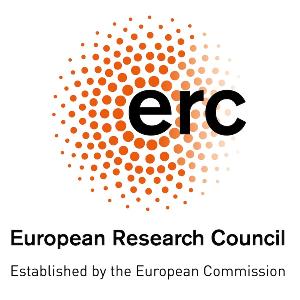Research
Our research projects range broadly in applied and theoretical econometrics with a focus on microeconometrics.
Our research projects range broadly in applied and theoretical econometrics with a focus on microeconometrics.

Much of our research has been funded by the European Research Council, first by a Starting Grant in 2019 and then by a Consolidator Grant in 2024. The first project investigated the effects of measurement errors on empirical results and political decisions and the second will develop new methods for the analysis of social inequality.
Below you can explore some of our recent research papers arranged by topic.
Measuring economic activity is a fundamental challenge for empirical work in economics. Mismeasurement may lead to severe model misspecification, biased estimates, and misled conclusions and policy decisions. We develop new methodologies for formally assessing the potential impact of measurement error on all aspects of an empirical project: on model-building, on estimation and inference, and on decision-making.
Below you can find examples of recent papers.
Featured Papers
Identification and Estimation of Nonparametric Panel Data Regressions with Measurement Error
Daniel Wilhelm
R&R at Review of Economic Studies
Testing for the Presence of Measurement Error
Daniel Wilhelm
R&R at Review of Economic Studies
Using Spatial Modeling to Address Covariate Measurement Error
Susanne Schennach and Vincent Starck
R&R at Journal of Econometrics
Rankings are often used to succinctly summarize information for subsequent decision-making. For instance, it is common to rank political parties, hospitals, universities, teachers, countries by various measures. In a first set of subprojects, we develop methods for assessing the statistical uncertainty in such rankings, which lead to conclusions about how informative an estimated ranking is about the true ranking.
In empirical work in economics, it is also common to transform observations into ranks before using the observations for estimation and inference. A common example are rank-rank regressions for measuring intergenerational mobility. In a second set of subprojects, we develop inference methods for such regressions that take into account the estimation uncertainty in the first-step estimation of the ranks.
Below you can find examples of recent papers.
Featured Papers
Inference for Ranks with Applications to Mobility across Neighborhoods and Academic Achievements across Countries
M.Mostad, J.P. Romano, A. Shaikh, and Daniel Wilhelm
Review of Economics Studies, 2024
Comment on "Invidious Comparisons: Ranking and Selection as Compound Decisions"
M.Mostad, J.P. Romano, A. Shaikh, and Daniel Wilhelm
Econometrica, 2023
Statistical Uncertainty in the Ranking of Journals and Universities
M.Mostad, J.P. Romano, A. Shaikh, and Daniel Wilhelm
AEA Papers and Proceedings, 2022
Finite- and Large-Sample Inference for Ranks Using Multinomial Data with an Application to Ranking Political Parties
S. Bazylik, M.Mostad, J.P. Romano, A. Shaikh, and Daniel Wilhelm
Accepted at Journal of Econometrics
Inference for Rank-Rank Regressions
Denis Chetverikov and Daniel Wilhelm
Working Paper, 2024
We develop new and improved existing methods for inferring causal effects in economic applications. To this end, we leverage classic nonparametric statistical procedures as well as modern machine learning methods.
For example, we show that the efficiency of regression discontinuity estimators can be improved by controlling for predetermined covariates in a flexible way and we develop new estimators that can be used when the treatment effect is only partially identified.
Below you can find examples of recent papers.
Featured Papers
Flexible Covariate Adjustments in Regression Discontinuity Designs
C. Noack, Tomasz Olma, and C. Rothe
Working Paper, 2024
Nonparametric Estimation of Truncated Conditional Expectation Functions
Tomasz Olma
R&R at Journal of Econometrics
We develop randomization inference methods for testing semi-parametric and nonparametric hypotheses. The focus lies on problems of practical relevance, such as testing for heterogeneity in treatment effects, two-sample testing of a large number of hypotheses, or testing problems under covariate-adaptive randomization.
Below you can find examples of recent papers.
Featured Papers
Quantile-based Test for Heterogeneous Treatment Effects
EunYi Chung and Mauricio Olivares
Journal of Applied Econometrics, 2024
Permutation Test for Heterogeneous Treatment Effects with a Nuisance Parameter
EunYi Chung and Mauricio Olivares
Journal of Econometrics, 2021
Robust Permutation Test for Equality of Distributions under Covariate-Adaptive Randomization
Mauricio Olivares
Working Paper, 2022
Network data, which describe the relationships among individuals in a sample, are increasingly available. They form the basis for the analysis of spatial correlations and the understanding of cross-sectional relationships.
We develop methods that use network information to improve causal estimates and provide new tools to analyze peer effects.
Below you can find examples of recent papers.
Featured Papers
Improving control over unobservables with network data
Vincent Starck
Working Paper, 2024
Definition and Estimation of Peer Effects through Latent Processes
Vincent Starck
Working Paper, 2024